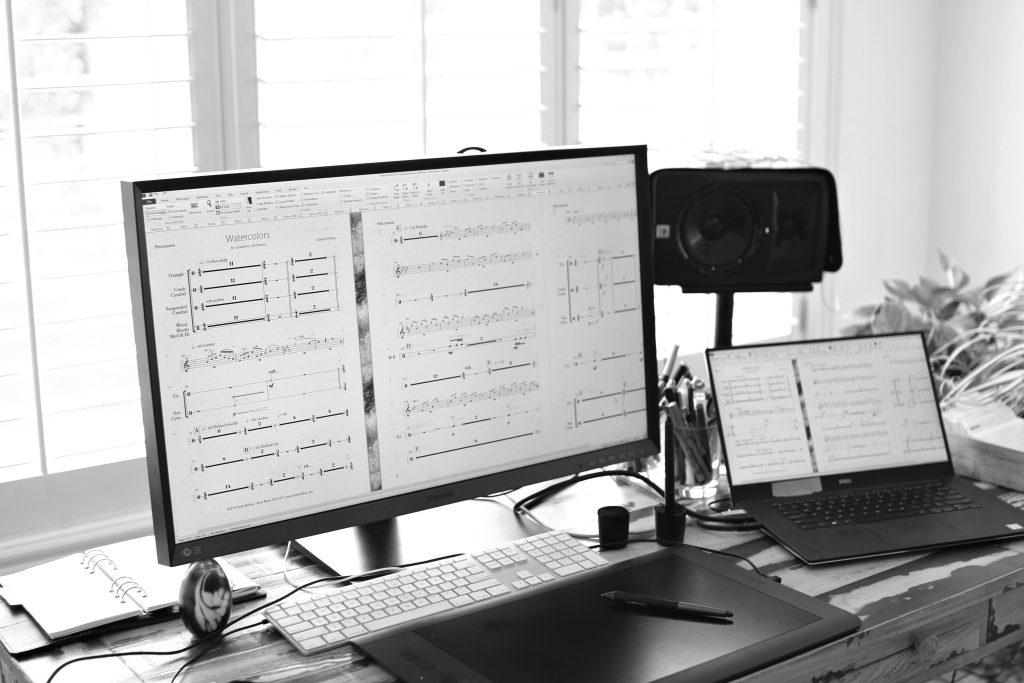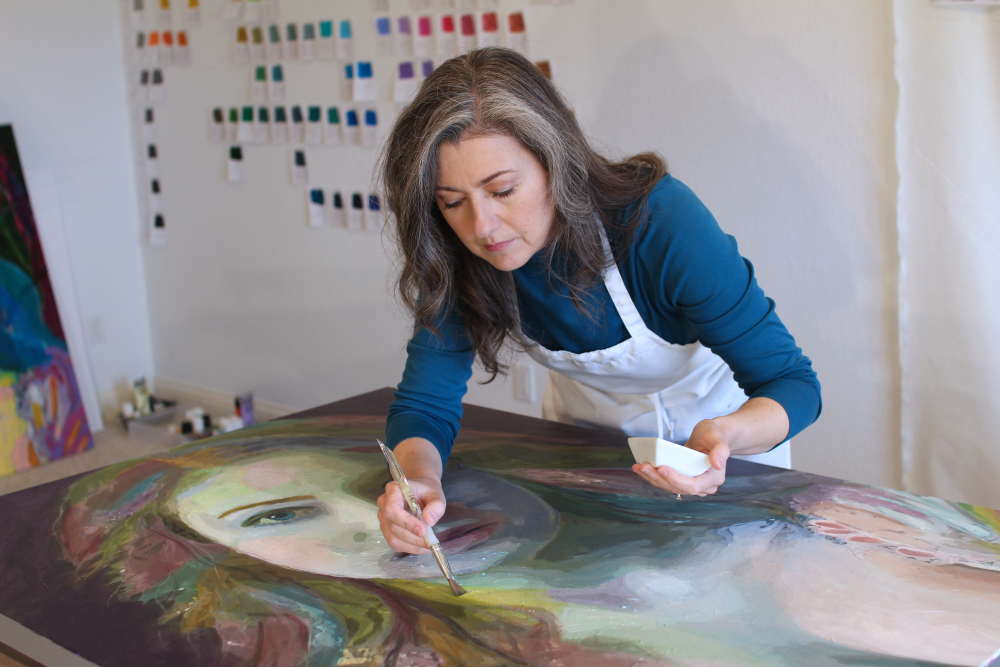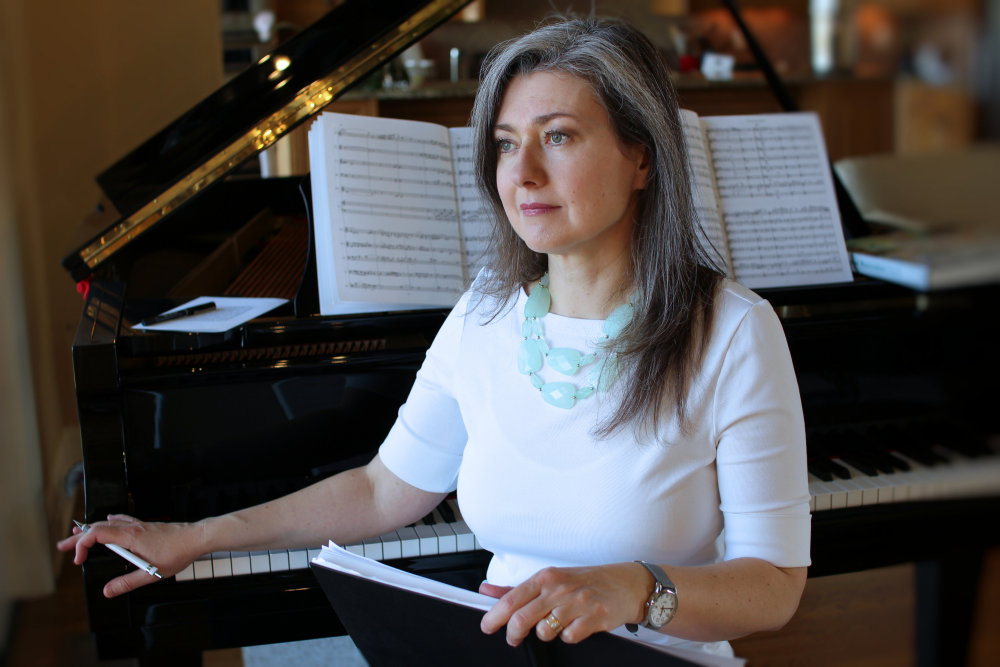
I crave instant gratification as much as the next person. I want minimal effort with maximum rewards. Immediate rewards. I want dopamine, the hormone of accomplishment, opening the floodgates of happiness and raising my self-confidence. I want public admiration and validation of my skills, my instincts, my contribution to society, my chosen life path. I want it all right now, but I would settle for tomorrow or next week. And while many professions offer all of the above, unfortunately, music composition is not one of them, or at least it has not been for me.
I am coming out of a long and dark tunnel of endless editing, formatting, and proofreading of the score and the instrumental parts to my orchestral composition that is scheduled to be premiered by the Knoxville Symphony in October. Nothing about this process has been glamorous or newsworthy. I have meticulously combed through 224 pages of black-and-white music notation in 15 separate rounds, examining every crescendo, every slur, every page turn, every key change, every meter change, every clef change, every horizontal and vertical spacing between the whole staves and between individual notes within each and every measure. This task has been repetitive, time-consuming, never-ending.
But why obsess about all the technicalities? Shouldn’t the performance be free-flowing, organic, and instinctive? If studying music in the film scoring program and recording with top-tier musicians has taught me anything, it is the understanding that at the professional level, the artistry springs from precision. In practical terms, if I want my music to be performed or recorded at its fullest potential, I need to write out such instrumental parts that they can be read through and played flawlessly at first sight. In a recording studio or in an orchestral rehearsal, time is very expensive. There is no room for musicians to struggle with the written music, to have to repeatedly clarify details that should have been obvious, that should have been spelled out on paper in a straightforward and visually pleasing way.
There is an art to formatting orchestral parts. One always balances between giving the performers artistic freedom and being condescending. The music should be uncluttered and focused, yet it should contain helpful cues from other instruments to maintain unity. Accuracy builds confidence of the players but hand holding can stifle spontaneity. Principal chairs get the solos and the glamour, while the assistant principals have to know both their own lines and those of the principals, in case of an emergency. Their parts are formatted accordingly, sometimes containing even more information than those of the principals. And then there are paper weight requirements, margin sizes, staff sizes, font sizes, tape and spiral bindings.
I rejoice that my obsessiveness and tenacity have found a productive outlet. The sound of my music depends on them. My reputation depends on them. The listeners may judge by what they hear, but the performers take one glance at the music and instantly know whether I have studied their instruments or whether I am winging it. (Have you heard about harp pedaling? It’s a universe onto itself.)
I am good at what I do and on some masochistic level I do enjoy the process, but with every finished composition I tell myself that this is probably my last one. I frequently fantasize about having a different profession, one with a shorter span between conception and delivery. One that brings, if not instant, then at least more immediate rewards. Or, bluntly put, one with a quicker turnaround. At the same time, I return to my chair day after day, realizing that I know no other discipline to which I am willing to devote this much precise attention and patience.
So far, I have described only the formatting of the score and the instrumental parts which took place in the last few months, but I have not mentioned that I actually composed the music four years ago. Such a long stretch of time between composition and public performance is not unheard of in my line of work. While countless composers have died without having heard their music performed, I consider myself very lucky that my short wait of a few years will soon be rewarded. And now my only hope is that for the conductor, for the musicians who play the piece, and for the audience who hears it, it will be instant gratification.
Learn more about the music: Watercolors for orchestra


